1. Orange, grapefruit, and other citrus

Vitamin C has antioxidant properties, which protect your cells from substances that damage the body.
A vitamin C deficiency can lead to delayed wound healing, an impaired immune response, and the inability to properly fight infections.
There’s currently no evidence that oral vitamin C is effective in preventing transmission of the new coronavirus (SARS-CoV-2) or treating the disease it causes, COVID-19.
However, research has shown promise for intravenous (IV) infusion of vitamin C as a COVID-19 treatment.
More clinical trials are in the works for treatment, not prevention, using IV infusion, not oral therapy.
However, if you have a cold, high doses of vitamin C might result in less severe symptoms and a quicker recovery. For adults, the tolerable upper limit is 2,000 milligrams (mg) a day.
2. Tomato

The best way to be sure your tomato juice is fresh and doesn’t contain a lot of added ingredients is to make it yourself. Simply Recipes has a wonderful recipe that only calls for a few ingredients.
The best part? No juicer or blender is required, although you’ll want to strain the bits and pieces through a sieve.
Tomatoes are rich in vitamin B-9, commonly known as folate. It helps lower your risk of infections. Tomatoes also provide modest amounts of magnesium, an anti-inflammatory.
3. Strawberry and mango
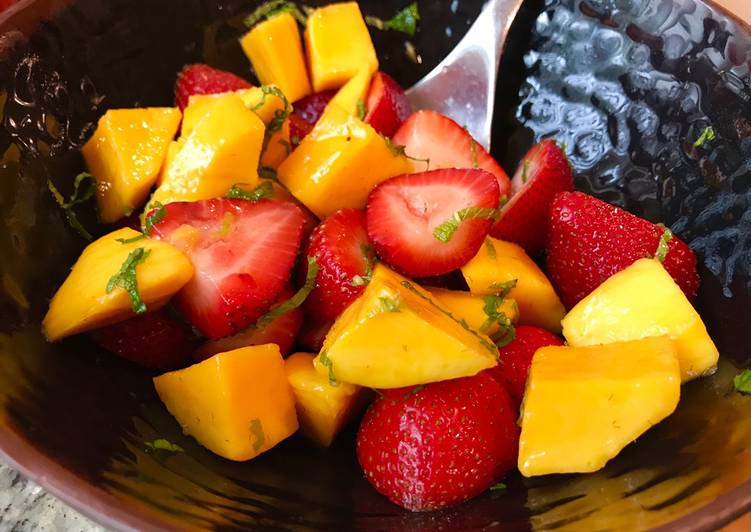
Feel Good Foodie’s strawberry mango smoothie is the healthy way to satisfy your cravings for a bottomless brunch. This recipe uses some frozen fruit, which packs the same nutritional punch as fresh fruit.
You can also opt for using all fresh fruits if you have them on hand.
The vitamin E from the mango and almond milk adds extra antioxidant benefits to enhance the immune system, especially in older adults
4. Watermelon, mint
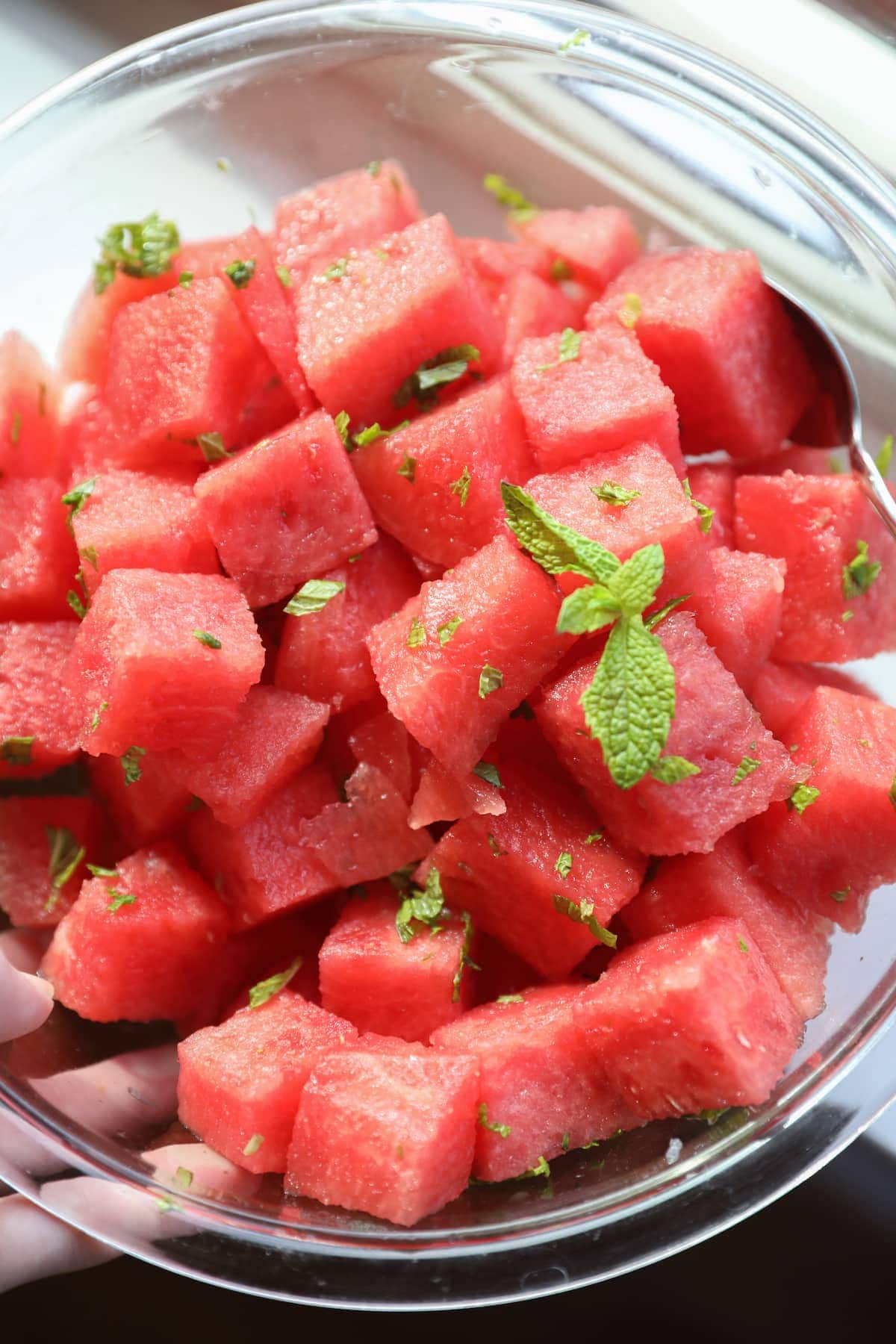
Not only is watermelon rich in vitamin C and arginine (which can bolster your immune system), but it also can help relieve muscle soreness. Muscle soreness is a common symptom of the flu, especially in older adults.
The heavy water content of this fruit may also make it easier to juice (and it feels like less of a waste of fruit).
You can also mix watermelon juice with other plain fruit juices, such as apple or orange, that may not have as much vitamin A.
5. Beet, carrot, ginger, and apple
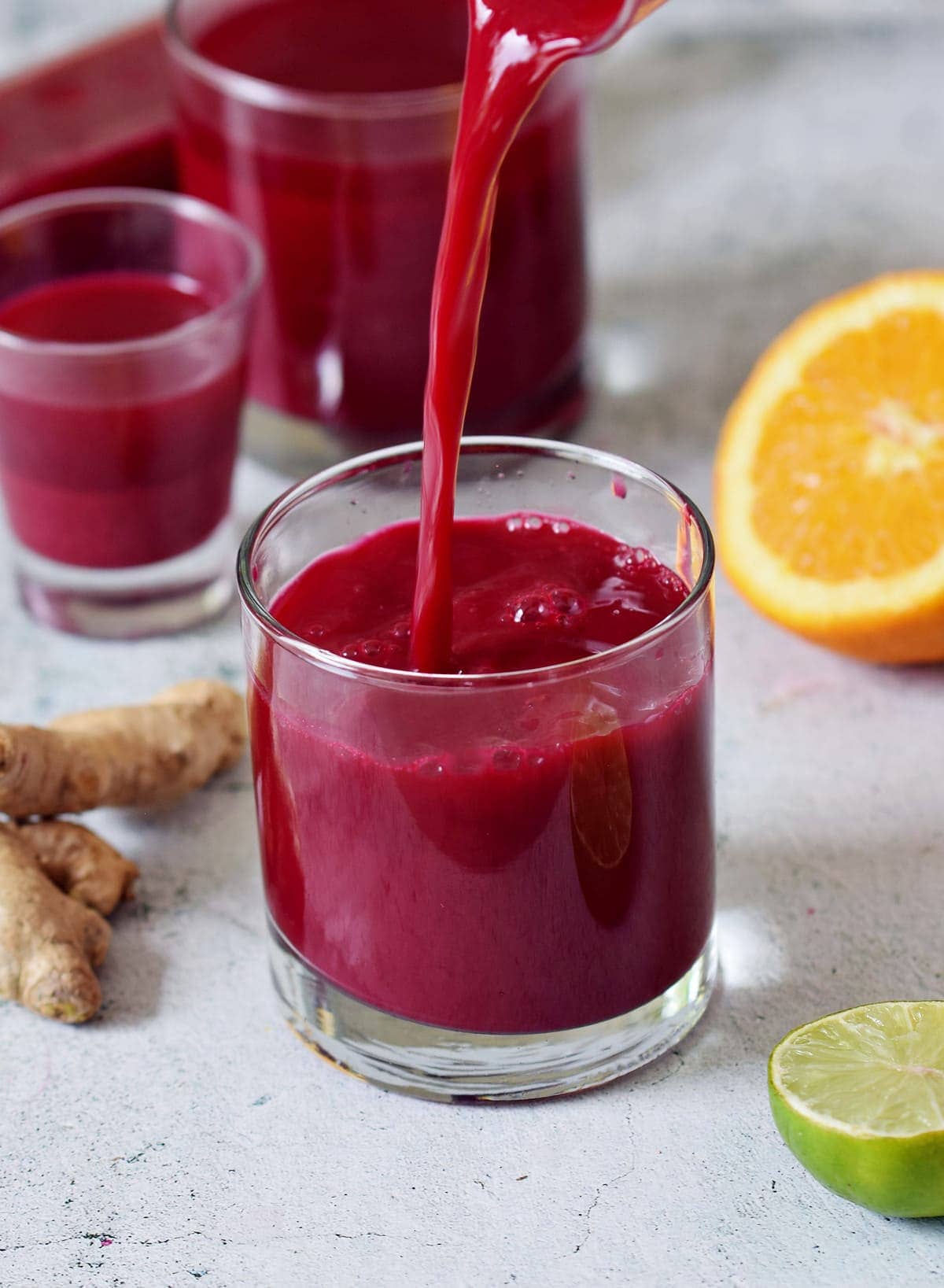
This fortifying juice by Minimalist Baker features three root vegetables that’ll help your immune system and decrease inflammatory symptoms.
Inflammation is often an immune response to infections originating from viruses or bacteria. Cold or flu symptoms include a runny nose, coughs, and body aches.
People who have rheumatoid arthritis may find this juice especially beneficial, as ginger has anti-inflammatory effects.
6. Green apple, carrot, and orange

Carrots, apples, and oranges are a winning combination for helping your body protect itself and fight off infections.
The apples and oranges give you your vitamin C.
Vitamin A, which is also critical to a healthy immune systemTrusted Source, is present in carrots in the form of the antioxidant beta carotene.
The carrots also contain vitamin B-6, which plays an important role in immune cell proliferation and antibody production.
The tartness of the green apples really cuts through the sweetness of the carrots and oranges.
7. Strawberry and kiwi
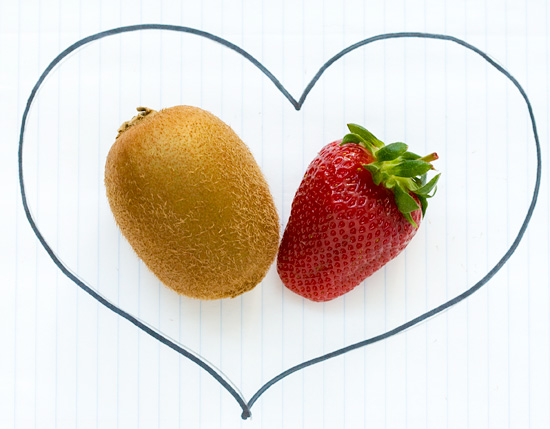
Strawberries and kiwis are other healthy options to include in a vitamin C-packed drink. Since it takes about 4 cups of strawberries to make 1 cup of juice, you may want to blend these fruits into a smoothie rather than a juice.
Many people are deficient in vitamin D, which is largely found in sunlight and in smaller amounts in animal products. Healthy levels, achieved through sunlight, diet, or supplements, reduce your risk of respiratory infections like pneumonia or the flu.
Some recent research suggests a connection between vitamin D deficiency and infection rates and severity. Clinical trials are needed to determine whether it has the same effect on SARS-CoV-2, the new coronavirus.
For an additional boost, swap the milk for a few ounces of probiotic-rich Greek yogurt. Taking probiotics may help your cells maintain an antimicrobial barrier. Probiotics are commonly found in supplements and fermented foods.
8. Kale, tomato, and celery
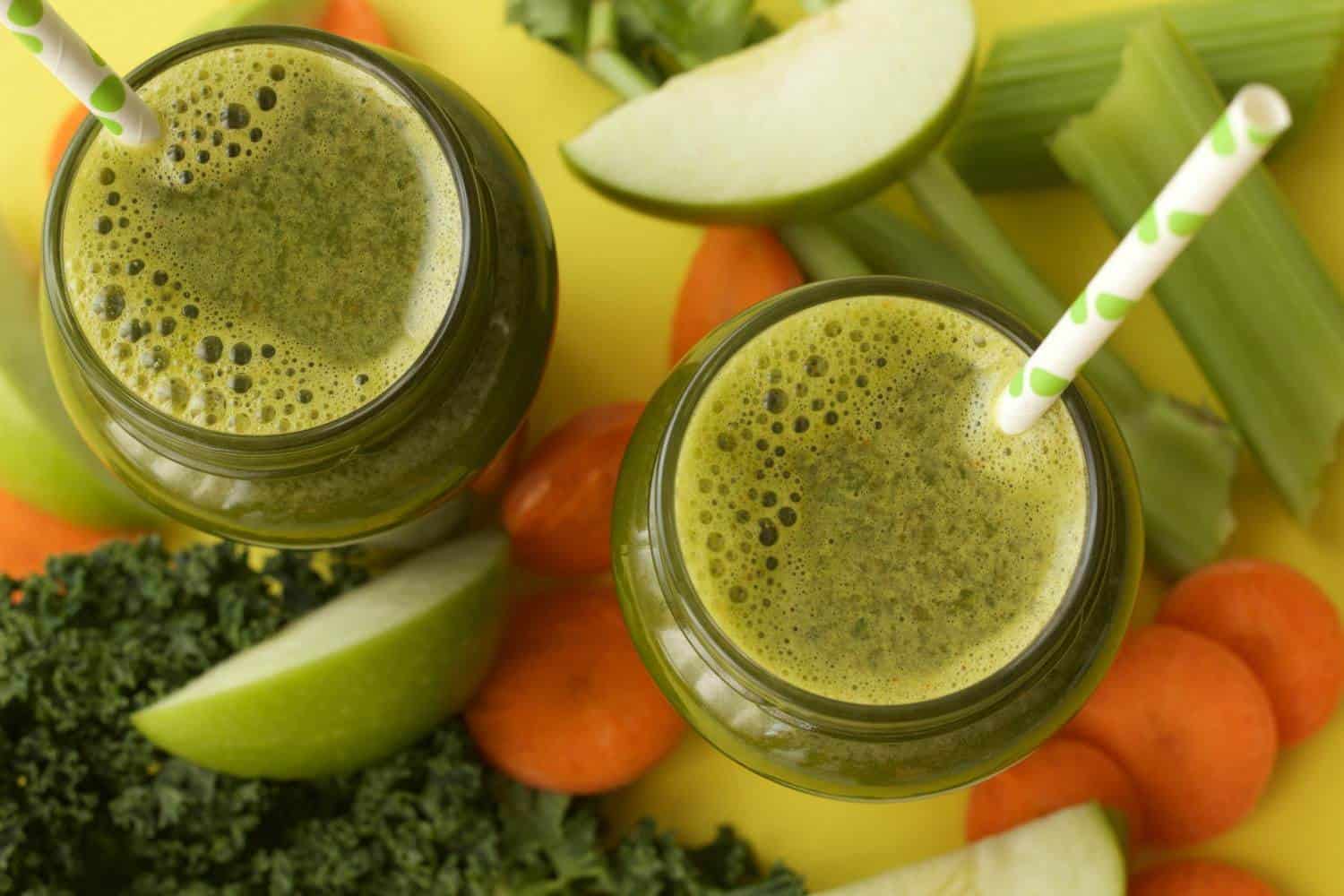
Kale is a staple in many green juices, but the Kale Mary — Tesco’s take on a bloody Mary — is truly one of a kind.
Instead of cutting the taste of kale with sweet fruits, this recipe uses tomato juice, adding more than enough vitamin A.
Adding some spicy horseradish to this recipe may also provide anti-inflammatory benefits, according to some research. Blend it up for a drink that’ll awaken your senses.4
9. Pumpkin seed
The pumpkin seeds are a great source of zinc. Zinc is already a common ingredient in many cold remedies, due to its positive effect on both inflammation and the immune system.
It’s one of the freshest, most natural recipes available online. It works as a great base for fruit smoothies too.
10. Green apple, lettuce, and kale

A vegetable-based green juice is a powerhouse of nutrients that promote a strong immune system.
Throw in a handful of parsley or spinach for some extra vitamins A, C, and K.
No comments:
Post a Comment
Note: only a member of this blog may post a comment.